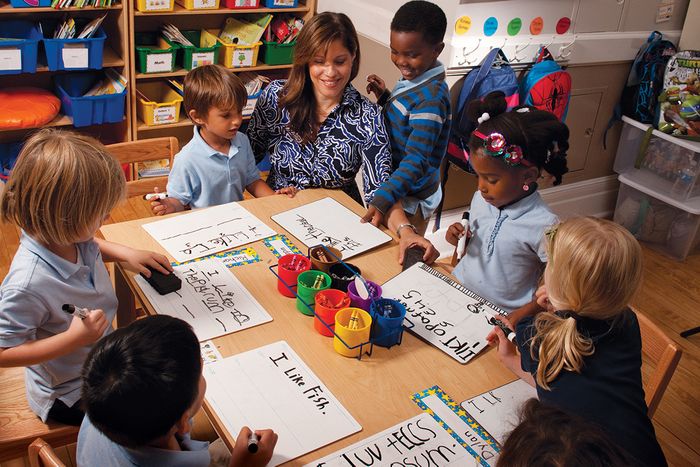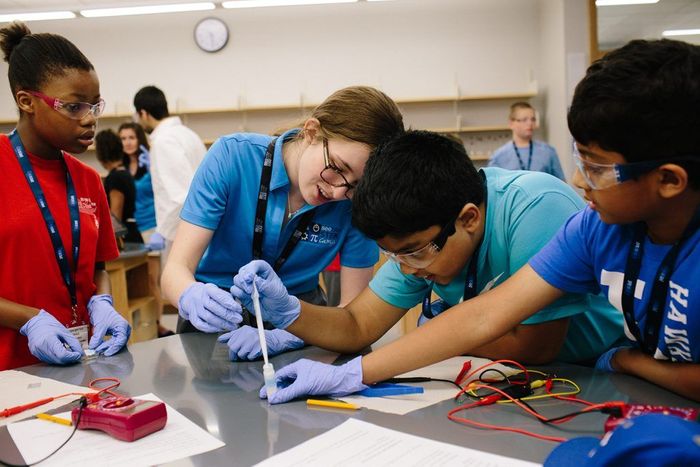Welcome to the dynamic world of Early Childhood Education, where the focus is on nurturing the potential of every young learner. In this blog, we go through a fundamental question: How long does it take to develop the skills and knowledge needed for shaping the futures of our youngest minds? Join us as we explain the durations of various Early Childhood Education programs, guiding you through the ways that lead to becoming a proficient professional in this essential field.

How Long is School for Early Childhood Education
Early Childhood Education is an important phase in a child's development that focuses on nurturing young minds from birth to eight years old. Early Childhood Education includes cognitive, emotional, social, and physical growth, with professionals playing a crucial role in creating a positive and exciting learning environment for children. Within the domain of Early Childhood Education, various degree options, including certificates, associate degrees, bachelor's degrees, and master's degrees, go to different educational levels, influencing the duration of your academic commitment.

Degree Options in Early Childhood Education
Certificate Programs (6 months - 1 year)
Certificate programs offer a brief but impactful introduction to Early Childhood Education. From six months to a year, these programs train individuals with foundational knowledge in child development, curriculum design, and effective classroom management. Ideal for those seeking a quick entry point or a skill boost in the field.
- Course Content
Certificate programs cover essential topics such as early childhood psychology, educational strategies, and classroom dynamics. The curriculum emphasizes practical skills through hands-on experiences and observational learning.
Associate Degrees (2 years)
For a deeper exploration of Early Childhood Education, associate degree programs extend over two years. These comprehensive programs provide a balance between theoretical insights and hands-on experiences. Students look into child psychology, and teaching methodologies, and gain practical skills crucial for effective classroom engagement.
- Curriculum Highlights
The associate degree curriculum expands to include in-depth explorations of child development theories, educational philosophies, and the application of effective teaching strategies. Practical experiences, including supervised teaching opportunities, are integral to this level.
Bachelor's Degrees (4 years)
A four-year commitment, a Bachelor's degree in Early Childhood Education offers a comprehensive understanding of the field. This program covers advanced topics such as child psychology, curriculum design, and teaching strategies. Incorporating practical experiences like student teaching prepares individuals for impactful roles in Early Childhood Education.
- Advanced Coursework
The bachelor's degree curriculum goes into advanced coursework, including child development research, educational leadership, and specialized teaching methodologies. The inclusion of student teaching experiences allows for hands-on application of theoretical knowledge.
Master's Degrees (1-2 years past bachelor's degree)
Master's degrees are designed for individuals who want to pursue specialized research or leadership roles. Extending one to two years after a bachelor's degree, these programs provide advanced coursework, research opportunities, and internships. Ideal for individuals aiming to contribute significantly to the field.
- Focused Research and Leadership Training
Master's degree programs focus on advanced research methodologies, specialized teaching approaches, and leadership skills within the context of early childhood education. Internships or practical experiences align with career aspirations and research interests.

The Impactful Role of Early Childhood Education Professionals
Outside the timelines and coursework, it's essential to look deeper into the profound impact Early Childhood Education professionals have on shaping the minds of the youngest learners. These dedicated educators play a key role in creating an environment where curiosity, creativity, and a love for learning flourish.
- Creating Foundations for Lifelong Learning
Early Childhood Education professionals lay the groundwork for a child's lifelong learning journey. By fostering a supportive and stimulating atmosphere, they instill a natural passion for acquiring knowledge, setting the stage for a love of learning that extends far beyond the early years.
- Emotional Intelligence
In the early stages of development, emotional intelligence is as crucial as academic knowledge. Early Childhood Education professionals are experts at recognizing and addressing the emotional needs of young children. Through empathetic guidance, they contribute to the development of emotional resilience and a strong sense of self.
- Facilitating Social Development
The classroom becomes a social laboratory under the guidance of Early Childhood Education professionals. They create opportunities for children to engage in meaningful interactions, fostering the development of essential social skills such as communication, cooperation, and empathy. These skills form the basis for successful interpersonal relationships in the future.
- Encouraging Creative Expression
Creativity is a foundation of early childhood development. Early Childhood Education professionals welcome and encourage creative expression, providing a platform for children to explore their imaginations freely. Through artistic activities, storytelling, and imaginative play, they inspire a sense of wonder and creativity in young minds.
- Adapting to Individual Needs
Every child is unique, and Early Childhood Education professionals understand the importance of recognizing and adapting to individual learning styles and needs. They create inclusive environments that celebrate diversity, ensuring that each child feels valued and supported in their educational journey.
- Developing a Lifelong Passion for Education
Beyond imparting knowledge, Early Childhood Education professionals inspire a real passion for learning. By making education enjoyable and meaningful, they develop a curiosity that goes after the early years. This love for learning becomes a powerful motivator for continued educational pursuits in the future.
- Partnering with Families
Early Childhood Education professionals recognize the crucial role that families play in a child's development. They establish strong partnerships with parents and guardians, creating a collaborative support system that extends outside the classroom. This partnership ensures a comprehensive approach to a child's growth and development.
The role of Early Childhood Education professionals exceeds the conventional boundaries of education. They are architects of a nurturing environment, character, and champions of the potential inherent in every young mind. As you go on your journey in Early Childhood Education, remember the lasting impact you will have on shaping future generations and fostering a love for learning that goes on throughout a lifetime.
Conclusion
The way to becoming an Early Childhood Education professional is diverse, offering various degree options to suit different aspirations. Each phase contributes to your growth as an Early Childhood Education expert. As you explore the world of Early Childhood Education, remember that the duration is just one aspect of the refined experience. Choose a program aligned with your passion, use online platforms to find early childhood education schools in Atlanta, and step into the fulfilling world of shaping young minds with knowledge, care, and dedication.
FAQs
What are the Key Qualifications for Early Childhood Education Programs?
Early Childhood Education programs typically require a high school diploma or equivalent for entry. Some programs may have additional provisions or specific coursework recommendations. Check the admission criteria of your chosen program for detailed requirements.
How Long Does it Take to Complete a Bachelor's Degree in Early Childhood Education?
A Bachelor's degree in Early Childhood Education usually takes around four years to complete. This duration may vary based on factors such as the institution's program structure, the number of credits per semester, and any earlier coursework or credits that can be transferred.
What Career Opportunities are Available in Early Childhood Education?
Graduates in Early Childhood Education can pursue various careers, including roles as preschool teachers, childcare center directors, education consultants, or curriculum developers. Some individuals choose to specialize in areas like special education or child advocacy.
Are Online Early Childhood Education Programs as Effective as On-Campus Options?
Online Early Childhood Education programs can be as effective as on-campus options when offered by recognized institutions. Many reputable universities and colleges provide online Early Childhood Education programs with the same curriculum and resources as their on-campus counterparts. It's essential to choose recognized programs to ensure quality education.
What Support Systems are in Place for Early Childhood Education Students? Institutions offering Early Childhood Education programs often provide strong support systems for students. This may include academic advising, tutoring services, and access to resources like libraries and online databases. Some programs offer mentorship opportunities or connections with professionals in the field to enhance the learning experience.
